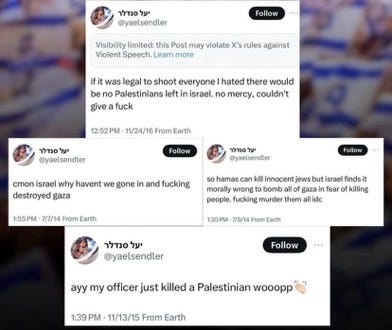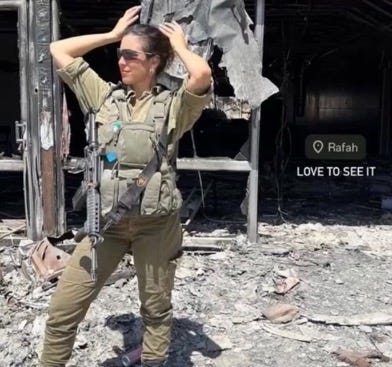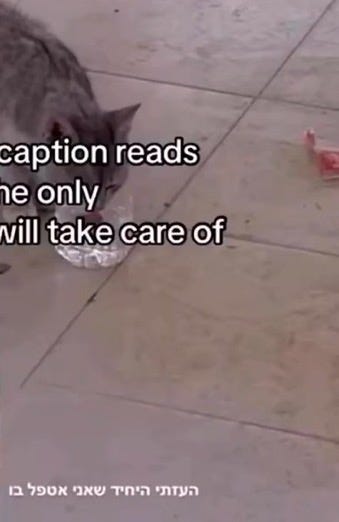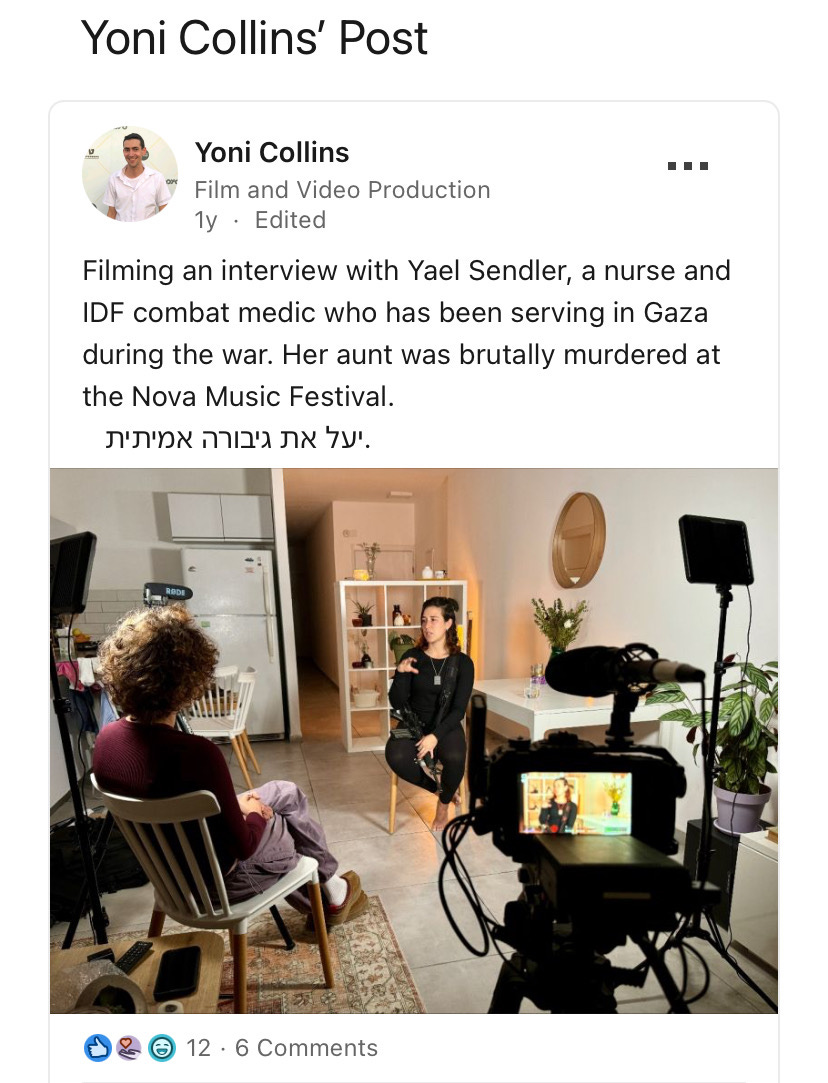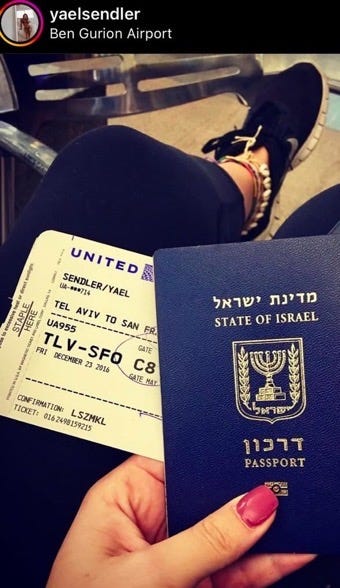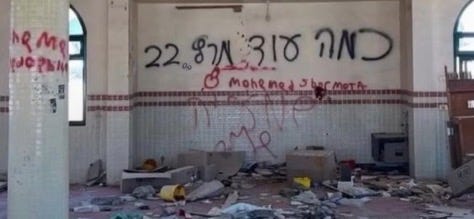The digital era has made it easier than ever to expose hypocrisy and complicity in global injustices. Yet, it has also amplified dehumanizing narratives, allowing actors like Yael Sendler—an American Pediatric ICU nurse and active participant in the genocide of Palestinians in Gaza—to not only remain unaccountable but to thrive in a web of professional networks like LinkedIn. Her actions, statements, and visibility reveal a disturbing marriage between professional privilege and state-backed atrocities.
Yael Sendler: Nurse Turned Agent of Genocide
Yael Sendler, a registered nurse with an active license (#95318907) in California, has drawn widespread condemnation for her role in the illegal occupation’s military operations in Gaza. Her social media posts display blatant genocidal intent, such as, “If it was legal to shoot everyone I hated there would be no Palestinians left in Israel. No mercy, couldn’t give a f***.”
Her hatred isn’t confined to words. A photo shows her standing before a destroyed building in Gaza, captioned with pride in the desecration of a vandalized mosque. In another, she callously declares that the only Gazan she would “care for” is a stray cat. The medical profession demands compassion, yet Sendler uses her credentials as a shield to normalize inhumanity.
The Role of LinkedIn and the Legitimization of Genocide
LinkedIn’s decision to provide a platform for an interview celebrating Sendler’s military role raises serious ethical concerns. In a widely shared LinkedIn post, Yoni Collins, a media professional, praises her service, ignoring her explicit history of hate speech and support for genocidal violence. By amplifying voices like hers, LinkedIn is not merely neutral but complicit in the dissemination of dehumanizing propaganda.
This isn’t an isolated incident. LinkedIn has become a hub for “professionalizing” narratives of genocide, allowing military officers and occupation leaders to reframe war crimes as achievements. Such posts are often accompanied by narratives of personal resilience or sacrifice, erasing the victims and framing the aggressors as misunderstood heroes.
The Broader Context: Digital Platforms as Enablers
Social media platforms like LinkedIn play a pivotal role in shaping public perceptions of geopolitical conflicts. By ignoring or even amplifying narratives that dehumanize oppressed populations, these platforms enable the normalization of violence. From celebratory posts about “successful operations” in Gaza to the erasure of Palestinian suffering, LinkedIn’s lack of accountability mirrors broader trends in digital propaganda.
As noted in the Genospectra framework, visibility is a tool of genocide. Platforms like LinkedIn amplify voices that dehumanize the oppressed, subtly conditioning users to accept violence as “necessary” or “inevitable”—a phenomenon directly tied to the rhetoric Sendler represents.
The case of Yael Sendler is a chilling reminder of how professional networks can serve as battlegrounds for legitimizing atrocities. While the California Board of Registered Nursing faces calls to revoke her license for unprofessional conduct, LinkedIn’s silent complicity is harder to challenge. As long as platforms profit from unchecked propaganda, they remain as guilty as the actors they enable.
Every Margin Sparks a Revolution. Together, We Are the Resistance.





